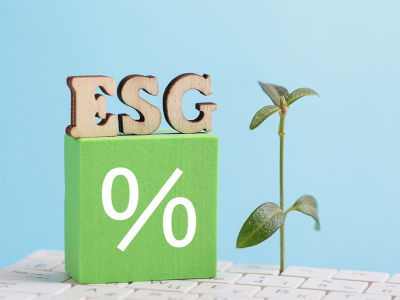In recent years, Environmental, Social, and Governance (ESG) considerations have taken center stage in the corporate world, reshaping how businesses operate and investors make decisions. This paradigm shift is not only a response to global challenges but also a strategic move toward sustainable, responsible, and ethical business practices. In India, the Securities and Exchange Board of India (SEBI) has played a pivotal role in driving this transformation through initiatives such as the Business Responsibility and Sustainability Reporting (BRSR) framework and other ESG regulations.
Understanding ESG:
ESG, an acronym for Environmental, Social, and Governance, represents a set of criteria that investors and stakeholders use to evaluate a company’s impact on these three crucial dimensions.
Environmental Factors:
This encompasses a company’s ecological footprint, including its carbon emissions, waste management practices, and commitment to sustainable resource use.
Social Factors:
Social responsibility involves a company’s impact on society. This includes considerations of labor practices, human rights, community engagement, and diversity and inclusion within the organization.
Governance Factors:
Governance looks at the internal structures of a company, focusing on its management practices, board composition, executive compensation, and overall corporate governance.
The Rise of ESG Regulations in India:
- National Voluntary Guidelines (NGVs):
The journey towards ESG consciousness in India began with the introduction of the National Voluntary Guidelines in 2011. These guidelines marked the initial push for responsible business conduct. - SEBI’s ESG Regulations:
In July 2023, SEBI unveiled new ESG regulations that introduced disclosure requirements and sustainable finance instruments. These regulations aim to establish a robust framework, promote transparency, and encourage investments in projects aligned with social and environmental goals. - ESG Funds and Reporting Standards:
SEBI’s regulations also extend to ESG funds, necessitating that a significant portion of their assets be invested in ESG-related activities. Reporting standards introduced in 2021 focus on metrics like gender diversity, carbon emissions intensity, and water consumption. - Business Responsibility and Sustainability Reporting (BRSR):
The BRSR framework is a game-changer, applying to the top 1,000 listed entities in India. With a phased approach, it aims to enhance transparency, accountability, and sustainability practices among companies. It addresses the lack of a standard ESG reporting framework and acts as a safeguard against greenwashing.
How BRSR and ESG Regulations Are Shaping India:
- Promoting Transparency and Accountability:
The BRSR framework, along with SEBI’s ESG regulations, fosters transparency by requiring companies to disclose their performance on ESG parameters. This promotes accountability and allows stakeholders to make informed decisions. - Incentivizing Sustainable Practices:
ESG regulations create a framework that incentivizes companies to adopt sustainable practices. This, in turn, aligns businesses with global sustainability goals and ensures their long-term resilience. - Mitigating Greenwashing Risks:
The BRSR framework is designed to minimize the risks of greenwashing. By setting clear disclosure requirements and reporting boundaries, it ensures that reported ESG metrics are accurate and reflective of a company’s true impact. - Driving Investment in Sustainable Projects:
SEBI’s regulations, especially those related to ESG funds, are channeling investments into projects that contribute to social and environmental well-being. This shift in investment patterns encourages the development of a sustainable ecosystem. - Global Alignment:
By adopting ESG standards and practices, India is moving towards global alignment. This not only enhances the country’s attractiveness to international investors but also contributes to a harmonized approach to sustainable business practices worldwide.
Conclusion:
The confluence of ESG regulations, spearheaded by SEBI and exemplified by the BRSR framework, marks a transformative period for businesses in India. Beyond compliance, these regulations are propelling a cultural shift towards responsible, sustainable, and ethical business conduct. As companies adapt to these changes, India is poised to become a key player in the global movement towards a more sustainable and equitable future.




